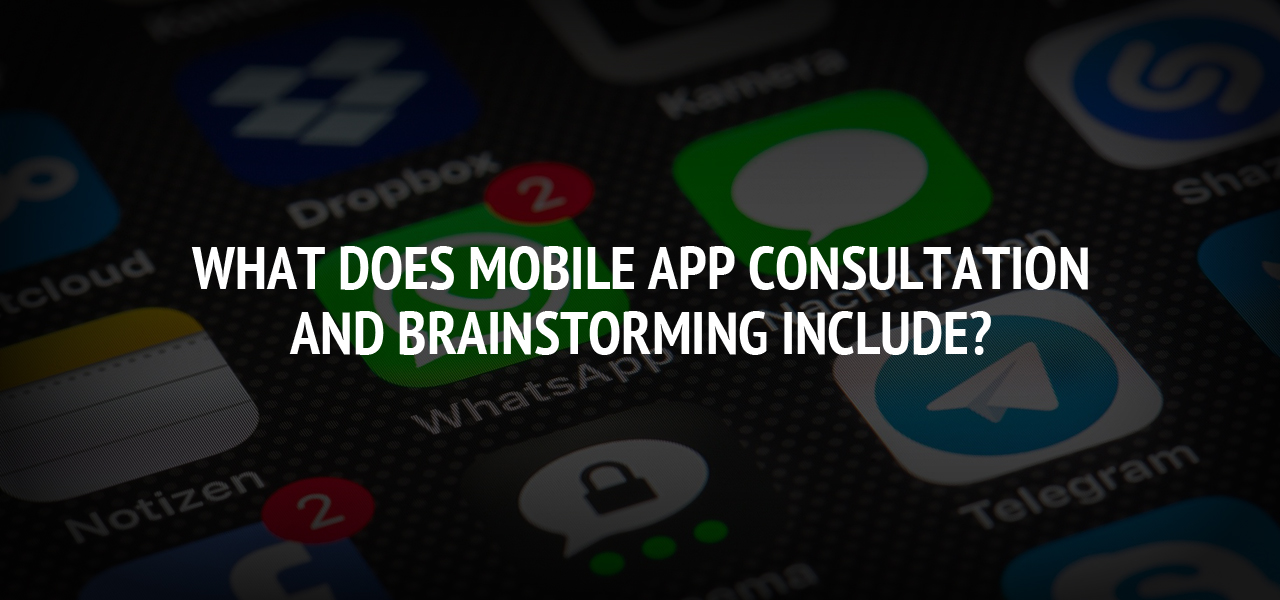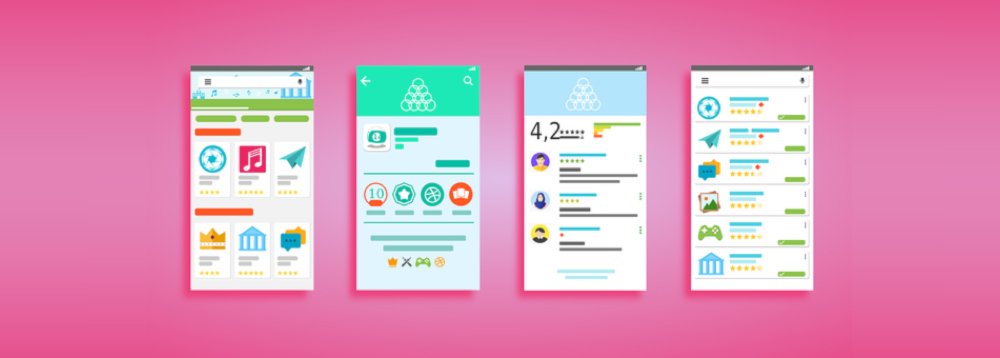What Does Mobile App Consultation and Brainstorming Include?

Mobile apps are a powerful tool in today’s business landscape. When correctly developed, these apps can increase brand loyalty, encourage customer engagement, boost sales, and, in general, return higher profits.
One staggering statistic that highlights the intense capability of this medium comes from Forbes. Where consumers only open marketing emails around 25%-30% of the time but they’ll open a push notification 90% of the time. This easily demonstrates the power of apps in the current market.
However, every great app has to start somewhere and that means that planning is crucial. Knowing what to expect and what steps to take during an initial consultation with developers and the brainstorming process can set your company’s new app on strong footing.
Coming Up with a Concept
The first thing to decide when it comes to creating an app for a business is defining what that app will be. A big part of this decision regards what the business is. What is the goal of the company? What features and functions are complementary to this goal?
This isn’t something that’s going to be concrete from the beginning. Rather, it’s often something that businesses and companies that make apps use as a framework that they tweak throughout the development process.
Cost Planning

Just like a consultation for anything else, a part of planning out an app is considering the cost of the project. During a consultation meeting, the business and developers will usually start by discussing the company’s budget. From here, they can work around knowing what the business itself needs.
With this budget in mind, it’s possible to start planning the scope of the app. Developers can compare the funds of the company against the features and functions they’ll invest in for the app.
Deciding a Platform
Creating a mobile app isn’t a very specific task. Once you decide that your company needs a mobile app, it’s time to think about where that app will be available. For instance, will it be smartphone specific? Is it going to cater to iOS, Android, or cater to both as a cross-platform app?
The answer to this question actually holds a significant amount of influence on the way the app is designed. Not only does it need to be programmed to suit the platform but consideration will also be put on factors such as how marketing the app will work and how the program will operate.
Monetizing the App

At the end of the day, creating an app is a way to make money for a business. As such, deciding how to monetize the app is crucial. For most businesses, the app itself is sold as a free installation. From there, they’re monetized through in-app purchases in the form of goods, services, or upgrades.
Deciding On a Unique Factor
Since the app industry is booming in almost every potential market, it’s important to take time during the brainstorming and consultation process to decide how your company’s app will stand out from competitors. This goes beyond just having a one-of-a-kind gimmick and includes careful consideration of what needs or wants that similar apps don’t offer and how this company’s app will address them.
Creating an app starts from humble beginnings. When developers and companies are starting the planning process, there are several things they need to consider. They need to decide what the app is going to be and how it’s going to stand out from a crowded market. Additionally, they’ll need to consider the business’ budget, how that money is best spent, and how the release of the app will earn it back with profit.
About The Author
Related Blog
View All-
4 Team-Building Ideas for Remote Teams
With more and more teams now working remotely, some people complain that it can be hard to get the same sense of camaraderie as with teams who all work at the same location. Teams perform best when they know and trust each other and feel comfortable approaching ...
-
Gaming Keeps Us Using Messenger Apps
There are hundreds of different messenger apps out there that people use every single day, each offering a little something different with the aim of standing out in a very competitive market. Today, messaging apps do so much more than just let the user send a ...







